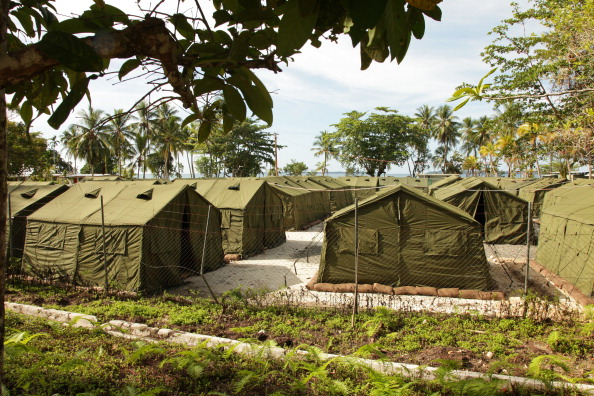
An asylum seeker who wrote a book using WhatsApp while in an Australian detention center on an island in the Pacific has won one of the nation’s most prestigious literary prizes.
Behrouz Boochani’s book, No Friend But the Mountains: Writing from Manus Prison, was awarded the 2019 Victorian Prize for Literature, worth $100,000 Australian dollars ($72,650). It also scooped up the prize for non-fiction at the same award ceremony, worth a further $25,000 Australian dollars ($18,160).
Boochani is still detained on Papua New Guinea’s Manus Island, but the detention center he wrote the book from has since been shut down after a controversy over its conditions.
He was unable to pick up the award in Melbourne because he is still not allowed into Australia. “In some ways I am very happy because we are able to get attention to this plight,” Boochani told the BBC. “But on the other side I feel that I don’t have the right to have celebration – because I have many friends here who are suffering in this place.”
The prize represents “a victory against the system that has reduced us to numbers,” he told the Guardian.
The book was mainly written in Farsi, a language of Iran from which Boochani is a refugee, and translated by Omid Tofighian, the recipient of Boochani’s WhatsApp messages.
“WhatsApp is like my office,” Boochani told the BBC. “I did not write on paper because at that time the guards each week or each month would attack our room and search our property. I was worried I might lose my writing, so it was better for me to write it and just send it out.”
Australia’s hardline immigration policy has come under harsh criticism from rights groups. The government says asylum seekers who arrive by boat must be housed outside of Australia’s borders while their claims are pending, and must not be allowed to resettle in Australia even if they are found to have a genuine claim to refuge under international law.
The Manus Island detention centers became symbols of Australia’s inhumane treatment of asylum seekers at the time Boochani was writing his book. Amnesty International called conditions there “hellish.”
After the center Boochani was housed in was closed down in 2017, Amnesty said refugees had not been moved to better quarters. “Instead of implementing new and creative ways to shirk its responsibility and violate international law, the Australian government must end this willful policy of cruelty and neglect,” the rights group said. “It must do the only safe and legal thing, which is to bring these men to its own shores and offer them the protection they need and deserve.”
Victorian Prize judges called No Friend But the Mountains “a stunning work of art and critical theory which evades simple description.”
“The writing is beautiful and precise, blending literary traditions emanating from across the world, but particularly from within Kurdish practices,” they said.
More Must-Reads from TIME
- Introducing the 2024 TIME100 Next
- The Reinvention of J.D. Vance
- How to Survive Election Season Without Losing Your Mind
- Welcome to the Golden Age of Scams
- Did the Pandemic Break Our Brains?
- The Many Lives of Jack Antonoff
- 33 True Crime Documentaries That Shaped the Genre
- Why Gut Health Issues Are More Common in Women
Write to Billy Perrigo at billy.perrigo@time.com